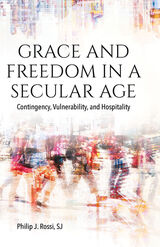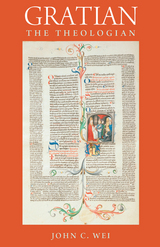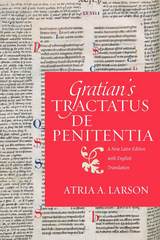187 books about Christian Church and 5
start with G
187 books about Christian Church and 5
187 books about Christian Church
5 start with G start with G
5 start with G start with G

Got Religion?
How Churches, Mosques, and Synagogues Can Bring Young People Back
Naomi Schaefer Riley
Templeton Press, 2014
Why are young people dropping out of religious institutions? Can anything be done to reverse the trend? In Got Religion?, Naomi Schaefer Riley examines the reasons for the defection, why we should care, and how some communities are successfully addressing the problem.
The traditional markers of growing up are getting married and becoming financially independent. But young adults are delaying these milestones, sometimes for a full decade longer than their parents and grandparents. This new phase of “emerging adulthood” is diminishing the involvement of young people in religious institutions, sapping the strength and vitality of faith communities, and creating a more barren religious landscape for the young adults who do eventually decide to return to it. Yet, clearly there are some churches, synagogues, and mosques that are making strides in bringing young people back to religion.
Got Religion? offers in-depth, on-the-ground reporting about the most successful of these institutions and shows how many of the structural solutions for one religious group can be adapted to work for another.
The faith communities young people attach themselves to are not necessarily the biggest or the most flashy. They are not the wealthiest or the ones employing the latest technology. Rather, they are the ones that create stability for young people, that give them real responsibility in a community and that help them form the habits of believers that will last a lifetime.
The traditional markers of growing up are getting married and becoming financially independent. But young adults are delaying these milestones, sometimes for a full decade longer than their parents and grandparents. This new phase of “emerging adulthood” is diminishing the involvement of young people in religious institutions, sapping the strength and vitality of faith communities, and creating a more barren religious landscape for the young adults who do eventually decide to return to it. Yet, clearly there are some churches, synagogues, and mosques that are making strides in bringing young people back to religion.
Got Religion? offers in-depth, on-the-ground reporting about the most successful of these institutions and shows how many of the structural solutions for one religious group can be adapted to work for another.
The faith communities young people attach themselves to are not necessarily the biggest or the most flashy. They are not the wealthiest or the ones employing the latest technology. Rather, they are the ones that create stability for young people, that give them real responsibility in a community and that help them form the habits of believers that will last a lifetime.
[more]

Governing Perfection
Donald S. Prudlo
St. Augustine's Press, 2023
"In the beginning, God administrated." For as Donald Prudlo observes, "There can be no achievement without administration." In this book he seeks to restore the idea that while administration is necessary even in the institutional Church, holiness is not only possible for those charged with governance, but is a fulfillment and type of Christus Rector omnium, or "Christ, Ruler of all.
Scrutinizing the relevant thought of Aristotle, Machiavelli, Thomas Aquinas, and Nietzsche, among others, Prudlo pursues the notion of order in governance and confronts both the bloat of bureaucracy and the "intoxicating nature of power." How can men and women who strive to live out humility and holiness likewise establish and participate in the structures that wield the powers of governance? "For the followers of Christ does not such a combination seem doomed from the outset?" Prudlo advances a thorough investigation of saints of the Christian tradition, whose responses to the problems inherent in authority and administration are living examples of the reality of grace building upon nature.
Of particular interest is Prudlo's historical presentation of the concept of Romanitas, a style of governance inherited from ancient Rome. Four early popes are given close attention for their respective administrations: Damasus I, Leo I, Gelasius I, and Gregory I. Emphasis is also given to the specific administrative genius that emerges from the monastic orders, including the 'Pachomian solution' and the Benedictine Rule. Prudlo gives the reader a portrait of Leo IX's reinvigoration of the ancient practice of 'synodality,' and the centrality of the papacy to internal ecclesial reform. In the context of an inquiry into monastic and papal administrations, readers encounter the beginnings of the Roman Curia as well, and are confronted with the difficulty of inserting new forms of apostolic itinerant preaching into the institutional life of the Church.
This study is an important contribution to the history of the papacy, ecclesiology and its relevance to legal ordering, and administration within governance as affected by multiple legal and cultural traditions. It is a masterful presentation that provides both the framework and reflection needed to inspire true perfection the in administrative forum. The relevance and force of Prudlo's Governing Perfection makes it a choice follow-up to his recent translation of Bartholomew of the Martyr's classic, Stimulus Pastorum: A Charge to Pastors (2022).
Scrutinizing the relevant thought of Aristotle, Machiavelli, Thomas Aquinas, and Nietzsche, among others, Prudlo pursues the notion of order in governance and confronts both the bloat of bureaucracy and the "intoxicating nature of power." How can men and women who strive to live out humility and holiness likewise establish and participate in the structures that wield the powers of governance? "For the followers of Christ does not such a combination seem doomed from the outset?" Prudlo advances a thorough investigation of saints of the Christian tradition, whose responses to the problems inherent in authority and administration are living examples of the reality of grace building upon nature.
Of particular interest is Prudlo's historical presentation of the concept of Romanitas, a style of governance inherited from ancient Rome. Four early popes are given close attention for their respective administrations: Damasus I, Leo I, Gelasius I, and Gregory I. Emphasis is also given to the specific administrative genius that emerges from the monastic orders, including the 'Pachomian solution' and the Benedictine Rule. Prudlo gives the reader a portrait of Leo IX's reinvigoration of the ancient practice of 'synodality,' and the centrality of the papacy to internal ecclesial reform. In the context of an inquiry into monastic and papal administrations, readers encounter the beginnings of the Roman Curia as well, and are confronted with the difficulty of inserting new forms of apostolic itinerant preaching into the institutional life of the Church.
This study is an important contribution to the history of the papacy, ecclesiology and its relevance to legal ordering, and administration within governance as affected by multiple legal and cultural traditions. It is a masterful presentation that provides both the framework and reflection needed to inspire true perfection the in administrative forum. The relevance and force of Prudlo's Governing Perfection makes it a choice follow-up to his recent translation of Bartholomew of the Martyr's classic, Stimulus Pastorum: A Charge to Pastors (2022).
[more]

Grace and Freedom in a Secular Age
Contingency, Vulnerability, and Hospitality
Philip J. Rossi
Catholic University of America Press, 2022
In the course of a long and distinguished academic and civic career, the Canadian philosopher Charles Taylor has been, for articulate atheists and learned believers alike, an incisive, insightful, gracious, and challenging conversation partner on issues that arise at the intersection and interaction of religion, society, and culture.
Grace and Freedom in a Secular Age offers a concise exposition of key ideas – contingency, otherness, freedom, vulnerability and mutuality – that inform his probing analyses of the dynamics of religious belief and religious denial in the pervasive contemporary culture he calls a “a secular age,” within which religious belief and practice have, for many, become just an option. Those ideas provide the basis from which Rossi argues that, despite a clear-eyed recognition of the deep fractures of meaning and the pervasive fragmentation of once stable societal connections that a secular age has brought in its wake, Taylor also sees and affirms strong grounds for hope in a healing of our broken and fractured world and for the possibilities—and the importance of—active human participation in that healing. Taylor points to signs indicative of potent re-compositions and renewals taking place in religious belief and practice from its interaction with the dynamics of secular culture, particularly ones that make possible radical enactments of deeper human solidarity and mutuality, of which the one most often potent is the reconciliation of enemies. In pointing out these signs, Taylor suggests a richly expansive reading of the Christian doctrine of Creation, as it marks the radical contingency of all that is upon a freely bestowed divine self-giving: Creation is the ongoing enactment of the divine hospitality of the Triune God.
[more]

Gratian the Theologian
John C. Wei
Catholic University of America Press, 2016
Gratian the Theologian shows how one of the best-known canonists of the medieval period was also an accomplished theologian. Well into the twelfth century, compilations of Church law often dealt with theological issues. Gratian's Concordia discordantium canonum or Decretum, which was originally compiled around 1140, was no exception, and so Wei claims in this provocative book. The Decretum is the fundamental canon law work of the twelfth century, which served as both the standard textbook of canon law in the medieval schools and an authoritative law book in ecclesiastical and secular courts. Yet theology features prominently throughout the Decretum, both for its own sake and for its connection to canon law and canonistic jurisprudence.
[more]

Gratian's Tractatus de penitentia
Atria A. Larson
Catholic University of America Press, 2016
Gratian's Decretum is one of the major works in European history, a text that in many ways launched the field of canon law. In this new volume, Atria Larson presents to students and scholars alike a critical edition of De penitentia (Decretum C.33 q.3), the foundational text on penance, both for canon law and for theology, of the twelfth century. This edition takes into account recent manuscript discoveries and research into the various recensions of Gratian's text and proposes a model for how a future critical edition of the entire Decretum could be formatted by offering a facing-page English translation. This translation is the first of this section of Gratian's De penitentia into any modern language and makes the text accessible to a wider audience. Both the Latin and the English text are presented in a way to make clear the development of Gratian's text in various stages within two main recensions. The edition and translation are preceded by an introduction relating the latest scholarship on Gratian and his text and are followed by three appendices, including one that provides a transcription of the relevant text from the debated manuscript Sankt Gallen, Stiftsbibliothek 673, and one that lists possible formal sources and related contemporary texts. This book provides a full edition and translation of the text studied in depth in Master of Penance: Gratian and the Development of Penitential Thought and Law in the Twelfth Century (CUA Press, 2014) by the same author.
[more]
READERS
Browse our collection.
PUBLISHERS
See BiblioVault's publisher services.
STUDENT SERVICES
Files for college accessibility offices.
UChicago Accessibility Resources
home | accessibility | search | about | contact us
BiblioVault ® 2001 - 2024
The University of Chicago Press









